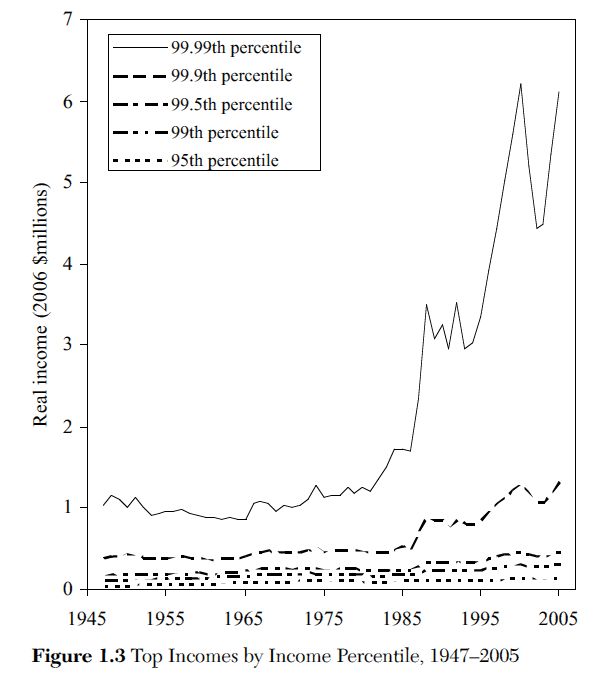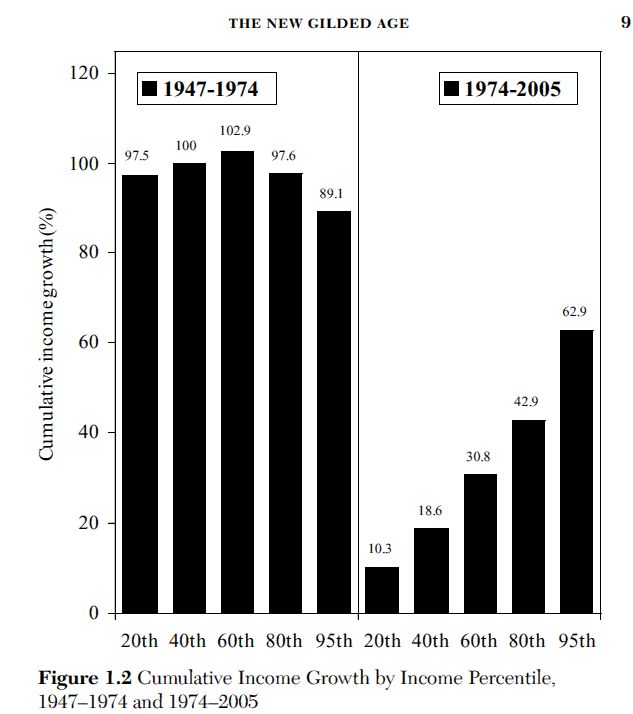The Very Soul Of A Republic
The Roots Of The Estate Tax
William H. Gates Sr. is the cochairman of the Bill and Melinda Gates Foundation in Seattle. Chuck Collins
is the cofounder and program director of Boston-based United for a Fair Economy.
The following text is an excerpt from chapter two of Wealth And Our Commonwealth by William
H. Gates and Chuck Collins, published by Beacon press. More information about the book is available on the Beacon Press Web site.
The essence of the American experiment is our collective rejection of European hereditary aristocracy
and grotesque inequalities of wealth. When Alexis de Tocqueville visited the United States in the mid-nineteenth century,
he noted that equality of condition permeated the American spirit: "The American experiment presupposes a rejection of inherited
privilege." In the words of novelist John Dos Passos, "rejection of Europe is what America is all about."
The nation's founders and populace viewed excessive concentrations of wealth as incompatible with the ideals of the new
nation. Revolutionary era visitors to Europe, including Thomas Jefferson, John Adams, and Ben Franklin, were aghast at the
wide disparities of wealth and poverty they observed. They surmised that these great European inequalities were the result
of an aristocratic system of land transfers, hereditary political power, and monopoly.
Monarchies and hereditary aristocracies mocked the republican principle of self-government. Writing in Common Sense,
Thomas Paine attacked the notion of hereditary government: "To the evil of monarchy we have added that of hereditary succession;
and as the first is a degradation and lessening of ourselves, so the second, claimed as a matter of right, is an insult and
imposition on posterity."
In two other articles, "Rights of Man" and "Agrarian justice," Paine extended his contempt of inherited political power
to a critique of inherited economic power. Paine proposed an inheritance tax that would fund an early version of Social Security.
The distrust of concentrated wealth was so great that, in an extreme sentiment, Ben Franklin argued "that no man ought
to own more property than needed for his livelihood; the rest, by right, belonged to the state." One could not accumulate
vast wealth, in the republican worldview, simply through one's own labors. In small-scale agrarian freeholder society, where
laud ownership was more widely distributed among men of European ancestry, there was a "natural distribution of wealth." Farmers,
artisans, and other workers reaped the "fruits of their own labor."
In 1776, artisans from Philadelphia put forward a provision for inclusion in the original state constitution of Pennsylvania.
They advocated for a limit on the concentration of wealth. "An enormous Proportion of Property vested in a few Individuals
is dangerous to the Rights, and destructive of the Common Happiness of Mankind; and therefore any free State hath a Right
by its Laws to discourage the Possession of such Property."
The provision was narrowly rejected. But the concern about inequality and accumulated wealth was present at the formation
of our nation.
Indeed, central to American republicanism was the principle of a broad and fair distribution of wealth and property. Noah
Webster, writing in favor of adopting the U.S. Constitution in 1787, expressed that "a general and tolerably equal distribution
of landed property is the whole basis of national freedom" and wide spread distribution of property was "the very soul of
a republic." Too much inequality was a threat to a self-governing society. Without an equitable land distribution, the founders
believed, the republic would not survive.
John Adams also viewed broad land ownership as a key ingredient in maintaining a balance of political power. He was greatly
influenced by seventeenth-century philosopher James Harrington, who argued that the widespread distribution of property dispersed
power. Adams believed that when "economic power be came concentrated in a few hands, then political power flowed to those
possessors and away from the citizens, ultimately resulting in an oligarchy or tyranny." In a 1776 letter to James Sullivan,
Adams articulated his perspective that a balance in property ownership was essential to liberty.
The balance of power in a society, accompanies the balance of property in land. The only possible way, then, of
preserving the balance of power on the side of equal liberty and public virtue, is to make the acquisition of land easy to
every member of society; to make a division of land into small quantities, so that the multitude may he possessed of landed
estates. If the multitude is possessed of the balance of real estate, the multitude will take care of the liberty, virtue,
and interest of the multitude, in all acts of government.
Thomas Jefferson, writing to James Madison in 1785 made the now famous statement that "the small land holders are the most
precious part of a state." He argued that legislators could not invent too many devices for subdividing property, "only taking
care to let their subdivisions go hand in hand with the natural affections of the human mind."
In the republican worldview, European aristocrats created unbalanced distributions of wealth by controlling the land through
inheritance laws of primogeniture and entail. These land tenure systems allowed land transfers only to oldest male children,
maintaining hereditary concentrations of land rather than broadly distributing it. In a conscious rejection of primogeniture,
Jefferson wrote:
The descent of property of every kind therefore to all children, or to all the brothers and sisters, or other
relations in equal degree, is a politic measure and a practicable one. Another means of silently lessening the inequality
of property is to exempt all from taxation below a certain point, and to tax the higher portions of property in geometrical
progression as they rise.
The revolutionaries believed in equitability, a notion of relative equality and fairness, rather than rigid equality.
Revolutionary writers and orators underscored that American society would have modest inequalities. "The utopian schemes of
leveling, and a community of goods," wrote Sam Adams, "are as visionary and impracticable, as those which vest all property
in the Crown." Rigid equality, according to Sam Adams, would be "arbitrary, despotic, and in our government unconstitutional."
Minor in equalities would exist as the result of differences in individual talent, effort, and modest variations in property
ownership.
This equitability translated into a culture that was antiaristocratic in sentiment. To be labeled an aristocrat or to be
accused of advocating for "aristocratic policies" was the ultimate political slander in revolutionary America. For instance,
John Adams through much of his later years had to fight the whispers that he had "monarchist sympathies," having spent so
many years consorting with royalty in France and England.
The founders celebrated the exceptionalism of the American experiment and heartily rejected aristocratic politics and economic
policy. "The economic agenda for a republic became clear," writes James Huston. "Enact the opposite of aristocratic legislation."
What made the new nation unique was its relative equality. Noah Webster exuded confidence in the justness of the American
system: "Here the equalizing genius of the laws distributes property to every citizen." In other words, no rent to an absentee
landlord or land ownership monopolies.
In their enthusiasm, the revolutionaries glossed over some of the enormous inequalities that existed in colonial society,
the most obvious of which was the existence of slavery.
"American society was not egalitarian and some individuals possessed impressive amounts of wealth," writes Huston. "An
elite did exist, and much of its property had come from political favoritism, inheritance, or family connections." At the
same time, their prescrip tions for addressing this inequality were overly simplistic. For in stance, the founders thought
that eliminating the aristocratic land laws of entails and primogeniture would institutionalize relative equality. John Adams
and Thomas Jefferson wrote confidently that America's land tenure system encouraged subdivision and a broader distribution
of land ownership, preventing aristocratic concentrations of ownership. Our nation's founders were blind to some of the inequalities
in their midst. But our national creed -- with its aspiration to greater equality and suspicion of accumulated wealth and
power -- was forged at the time of our nation's independence.
Economic historians have caricatured American economic thought as a conflict between Jeffersonian democratic egalitarians
and Hamiltonian free market capitalists. But as historian Joseph J. Ellis observed, "the projection of their debate as the
archetypal dialogue in American political culture has become a historical cartoon." In reality, both of these "founding brothers"
shared a concern for balancing an unjust concentration of political power with liberty and free enterprise. Hamilton was more
enamored with concentrations of economic power because they capital, or the "synergy of aggregated investment."
Yet both Hamilton and Jefferson shared a rejection of the aristocratic economic system that allowed a few people to appropriate
the fruits of labor of others, resulting in an unjust accumulation of property and wealth. The revolution never resolved this
tension between economic freedom and democracy; rather it "contained the explosive energies of that debate within an ongoing
argument that was eventually institutionalized in political parties and built into the fabric of our national identity." This
balancing act lived within the republican consensus, a worldview that was to last almost 125 years.
The balance of power in a society, accompanies the balance of property in land. The only possible way, then, of preserving the balance of power on the side of equal liberty and public virtue, is to make the acquisition of land easy to every member of society; to make a division of land into small quantities, so that the multitude may he possessed of landed estates. If the multitude is possessed of the balance of real estate, the multitude will take care of the liberty, virtue, and interest of the multitude, in all acts of government.
The descent of property of every kind therefore to all children, or to all the brothers and sisters, or other relations in equal degree, is a politic measure and a practicable one. Another means of silently lessening the inequality of property is to exempt all from taxation below a certain point, and to tax the higher portions of property in geometrical progression as they rise.



